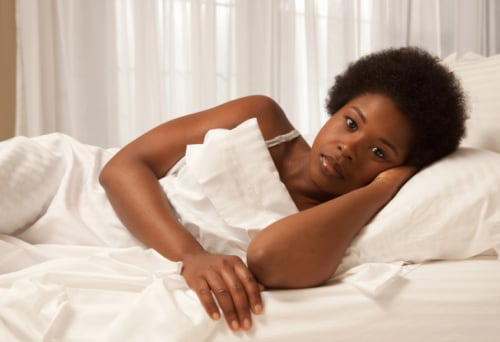Tossing and turning when you should be soundly asleep disturbs the body’s natural rhythm and greatly increases your chances of developing type 2 diabetes.
New research from the Harvard School of Public Health found that the increased risk was a problem for middle aged and older women who were getting less than six hours of sleep each night.
Whether the study participants had trouble falling asleep or staying asleep; snored frequently; had sleep apnea; or worked on rotating shifts that disturbed their sleep pattern, the women had a 45 percent greater chance of developing type 2 diabetes. Women who endured four types of sleep problems, rather than just one, had four times the odds of developing type 2 diabetes.
The somewhat startling study results could be particularly helpful to black women. One in four African American women older than 55 are diabetic, but exercise, mindful eating, and taking care of yourself in important ways, such as getting the proper amount of sleep, can help you manage or beat the disease.
8 Quick Fixes for a Better Night’s Sleep
“Women with sleeping difficulty, especially when also having other conditions, should be aware of the potential higher risk of diabetes,” said Dr. Yanping Li, a research scientist at Harvard and the lead researcher for the study in a University interview.
“Doctors should pay more attention to the potential diabetes risk of women who have difficulty falling asleep or staying asleep,” she said.
The researchers could not identify the direct link between sleep and diabetes, but other research has shown that disrupted sleep or a lack of sleep disturbs the body’s circadian rhythm. It is regulated by the same hormones that control your weight and your blood sugar.
The research was conducted with information from more than 133,000 American women who took part in the Nurses’ Health Study between 2000 and 2014. The group was followed for over 10 years, during which time more than 6,400 of them developed diabetes.
This new study confirms what so many other studies have shown—getting a good night’s sleep is a critical part of staying healthy. If you are suffering with sleep apnea (severe snoring that interrupts breathing and sleep), insomnia, or other sleep problems, ask your doctor to refer you to a sleep specialist for help.








